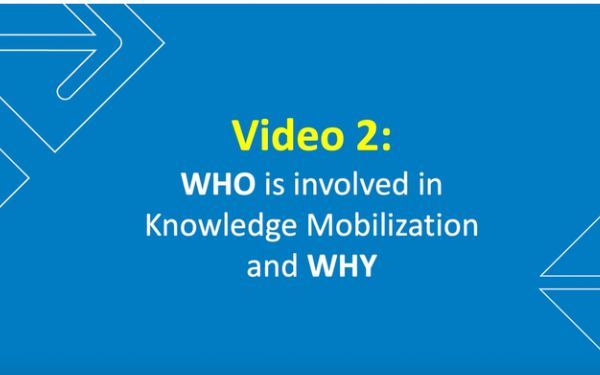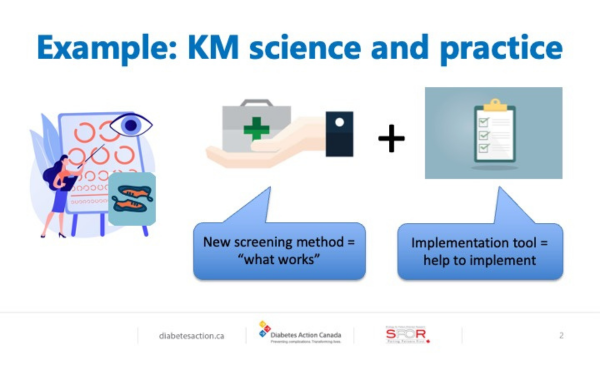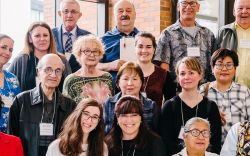
Knowledge Mobilization and Evaluation


Knowledge Mobilization and Evaluation
What We Do
- Support and build Diabetes Action Canada’s knowledge mobilization capacity through various resources, including a learning toolkit, a consultation service, and a virtual community of practice.
- Work collaboratively with Diabetes Action Canada members to help support the sharing of their research findings and to mobilize their research results into practice and policy.
- Optimize Diabetes Action Canada’s knowledge mobilization activities and objectives through the continuous evaluation and improvement of knowledge mobilization processes and resources.
- Use our expertise to provide evaluation design and methodological support to all patient-oriented research programs, using various types and approaches as needed.
Get Involved
You will participate in discussions approximately once a month pertaining to research projects and strategic goals of the Network. You can also get involved in a research team! Researchers need your feedback to make sure research projects are relevant for people living with diabetes.

Knowledge Mobilization Consultation Service
The Knowledge Mobilization (KM) Consultation Service is a program to support DAC research teams with their KM needs at any stage of the research process.

Knowledge Mobilization Basics Video Series
Want to learn the basics of knowledge mobilization? Our “Knowledge Mobilization Basics Video Series” includes five short videos explaining the WHAT/WHY, WHO, HOW, WHERE and WHEN of KM in a simple and easy to understand way.

Common Knowledge Translation/Mobilization and Implementation Science (KM-IS) Practice Tools
Helpful resources to support your knowledge mobilization goals.
Related Articles

Diabetes Canada Provides Funding Support for Knowledge Mobilization Program
As we move into phase two of Diabetes Action Canada, the Network has a clear goal of translating the research and learnings from our first phase into understandable and implementable deliverables that aim to better support those living with diabetes in Canada. To further this, we are pleased to announce funding support from Diabetes Canada […]

New Knowledge Mobilization Tools and Consultation Service Available
Our Knowledge Mobilization (KM) team is pleased to launch two new resources for Diabetes Action Canada’s community as part of our DAC 2.0 KM Plan. “WHAT is Knowledge Mobilization and WHY it matters”, is the first in a series of 5 short videos that describe the basics of knowledge mobilization in simple, straightforward language. Watch the video […]
Related Webinars

WHAT is KM and WHY is it important?
Knowledge Mobilization Basics. Learn how we move research results to the ‘real world’ so that we can positively improve health systems, how people access these systems and the health of all those living with diabetes in Canada

Who is Involved in Knowledge Mobilization and Why?
In the second video from our Knowledge Mobilization Basics Series, we look at WHO is involved in Knowledge Mobilization and WHY it is important to include all individuals who will use or be affected by the research results in the real world. We’ll explore how involving these individuals will ensure the best chances of
successful knowledge mobilization.

HOW to do Knowledge Mobilization
In this third video of our Knowledge Mobilization Basics Video Series, we take a closer look at HOW to do or practice knowledge mobilization. We explore the process of change, which is the essence of knowledge mobilization and implementation science. We share how both the science and practice of knowledge mobilization work together to make change happen.





